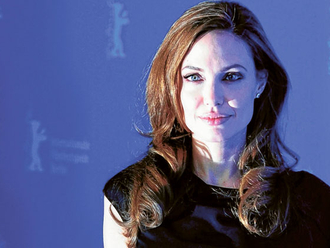
A home-grown short film entitled Shawarma, directed by an Abu Dhabi-based filmmaker, is making ripples online and has won two awards at the recent Kochi International Short Film Festival.
It explores the challenges faced by Malayali immigrants living in Khor Fakkan.
Just like how shawarmas — the popular, no-fuss Middle Eastern snack made with roasted chicken shavings in pita bread — are deeply satisfying, the 32-minute film uploaded on YouTube on June 16 is equally heart-warming as it explores the themes of assimilation between Emiratis and expatriates and delves into the trials faced by migrants who come to the UAE in search of a better life.
It’s a crisp tale showcasing the human spirit among immigrants and kinship between the UAE’s nationals and its foreign workers.
Directed by Jimmy Joseph, who works as an e-learning instructor in Al Ain, and produced by Ahmad Al Romaithi, Shawarma was filmed in real locations. The film, written by UAE-based writer Sadiq Kavil, dwells into the life of Manu, a shawarma maker who is yearning to return to his native home in Kerala and visit his mother or even bring her to the UAE for a visit.
Manu hasn’t been to India in the last four years and is fervently hoping that his boss and cafeteria owner (Malayalam actor Kochu Preman) and their local Arab business sponsor, played by Emirati actor Halim Qayed, would grant him leave so that he could spend time with his ageing mother. His dream is that his mother would get to taste his shawarmas, his claim to fame in the coastal town.
“Anybody living in the UAE will be able to relate to our film because it touches upon issues that are real and grounded… Manu is representative of all those shawarma makers in the UAE and their lives,” said Joseph in an interview with Gulf News tabloid!.
Shawarma, made on a tight budget of Dh22,000 and filmed in around four days in a real cafeteria near Fujairah, is the labour of love of a bunch of film enthusiasts living in the UAE, claims the director with no formal training in filmmaking.
While Joseph may not have a formal degree in movie making, he’s intent on making a career in films.
Shawarma is his third short film following Spymates (which clocked more than 200,000 views) and Valet Parking (1.4 million views on YouTube). Shawarma took more than 15 months to plan and execute.
“It’s just my unending passion for making films that led to us making the new short film Shawarma … My first two short films touched upon the lives of the upper middle class who were posh and revolved around fictional events that could happen in any metro in the world. My targeted audience in my first two short films were the middle class and upper middle class folks.
And I was asked by many in the UAE as to why I did not make films about the pravasi Malaylis [Malayali NRIs] which were a bit more genuine and real,” said Joseph. He was advised to ditch the upper crust narratives for real stories that would resonate with the UAE expatriate community and the locals. He obliged and served up Shawarma.
The base of Shawarma came when his friend, a journalist in a Malayalam daily, narrated an incident about a shawarma maker in the UAE and how he yearned to see his mother for several years.
The lead players in Shawarma are all UAE residents who share Joseph’s passion for good cinema.
While Manu is played by his sales executive friend Kabir Avran, his former boss and actor Halim Qayed played the role of the Emirati in Shawarma.
Qayed, who plays the benevolent ‘arbab’ who makes Manu’s dream of seeing his mother come true, claims that he took on the role because he hated the idea of Arabs being stereotyped in films. Apparently, when he heard that Joseph was making a short film that featured an Arab role, he volunteered and insisted on playing that character. The prospect of one of Joseph’s Malayali friends doing the role of the Arab felt wrong and he knew that it would encourage racist mischaracterisation and misrepresentation.
“I loved the story of Shawarma. It was touching and reflected today’s times. But what compelled me to be a part of this film was because I was afraid… Many filmmakers bring other nationalities to play Arab characters… They look wrong, act wrong and this is what made me insist that I take on the ‘arbab’ role… Even the international films — American and European films — show us Arabs in bad light. So I wanted this role to be done right,” said Qayed in a separate interview. The 44-year-old actor is visibly younger in Shawarma.
“My beard is usually white, but Jimmy told me to colour it black… I didn’t particularly like that but I found the story of Shawarma touching and I loved the simplicity of this humane story,” said Qayed.












